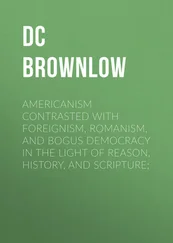Despite the fact that The Times of London had already exposed The Protocols of the Elders of Zino as completely false in 1921, Ford would continue to publish the contents of the document. The Protocols would go on to be taught as absolute fact in children’s classrooms throughout Nazi Germany. In fact, prior to the Second World War, the National Socialist Party would reprint The Protocols twenty-three times. In his public apology that was issued in 1927 (discussed later in this chapter), Ford would acknowledge The Protocols as ‘gross forgeries’.
On 29 May 1920, Ford published an editorial on the topic of the German outlook on the topic of Jews and the blame he felt they carried for the state of things in Germany after the First World War. He starts the article by stating:
Humanity has become wise enough to discuss those forms of physical sickness over which it formerly drew the veil of shame and secrecy, but political hygiene is not so far advanced. The main source of the sickness of the German national body is charged to be the influence of the Jews, and although this was apparent to acute minds years ago, it is now said to have gone so far as to be apparent to the least observing. The eruption has broken out on the surface of the body politic, and no further concealment of this fact is possible. It is the belief of all classes of the German people that the collapse which has come since the armistice, and the revolution from which they are being prevented a recovery, are the result of Jewish intrigue and purpose.
Ford didn’t believe that Jews had any place in German society,
The Jew in Germany is regarded as only a guest of the people, Ford wrote, …he has offended by trying to turn himself into the host. There are no stronger contrasts in the world than the pure Germanic and pure Semitic races; therefore, there has been no harmony between the two in Germany; the German has regarded the Jew strictly as a guest, while the Jew, indignant at not being given the privileges of the nation-family, has cherished animosity against his host.
One pervasive theme throughout Ford’s writing is something he calls the ‘Jewish Question’. He discusses in-depth his feeling that Jews weren’t being discriminated against or singled-out due to their religion, but rather due to the attitude of inclusiveness involved in Jewish culture and various attributes that he considers a part of their genetic make-up as an ethnicity.
In today’s world the question of political correctness is often a hot-button issue, especially in America. There is a firm divide between people who believe in sensitivity and dignity for all and those who believe speech, and the way we address things like gender, sexuality, race and religion, should not be altered at all with modern terminology or progressive ways of thinking. This can often lead to labels and attitudes that many find offensive. It’s clear from Ford’s writing that racial sensitivity was an issue of debate even back in the 1920s, particularly when it pertains to anti-Semitism:
The chief difficulty in writing about the Jewish Question is the super sensitiveness of Jews and non-Jews concerning the whole matter. There is a vague feeling that even to openly use the word ‘Jew,’ or to expose it nakedly to print, is somehow improper. Polite evasions like ‘Hebrew’ and ‘Semite’, both of which are subject to the criticism of inaccuracy, are timidly essayed, and people pick their way gingerly as if the whole subject were forbidden, until some courageous Jewish thinker comes straight out with the good old word ‘Jew’, and then the constraint is relieved and the air cleared.
There is extreme sensitiveness about the public discussion of the Jewish Question on the part of Gentiles…the Jew still remains the enigma of the world.
Ford was increasingly obsessed with his conspiracy theories. He was convinced that the ‘Jewish Question’ comes down to the power and control that he claims the Jews were seeking around the world:
Is there a Jewish Question in Russia? Unquestionably, in its most virulent form…Whether you go to Rumania, Russia, Austria or Germany, or anywhere else that the Jewish Question has come to the forefront as a vital issue, you will discover that the principal cause is the outworking of the Jewish genius to achieve the power of control.
Ford goes on to describe his view of the Jewish people:
The Jew is the world’s enigma. Poor in his masses, he yet controls the world’s finances. Scattered abroad without country or government, he yet presents a unity of race continuity which no other people has achieved. Living under legal disabilities in almost every land, he has become the power behind many a throne. There are ancient prophecies to the effect that the Jew will return to his own land and from that centre rule the world, though not until he has undergone an assault by the united nations of mankind.
Ford and his newspaper were getting a lot of negative feedback about his articles highlighting what he considered the threat of the ‘International Jew’, and he was less than sensitive to their concerns in reply. When faced with mass criticism of the outright racist and hateful nature of the articles in his newspaper, Ford actually managed to take the stance of the victim:
This series of articles is already being met by an organized barrage by mail and wire and voice, every single item of which carries the wail of persecution. One would think that a heartless and horrible attack were being made on a most pitiable and helpless people – until one looks at the letterheads of the magnates who write, and at the financial ratings of those who protest, and at the membership of the organizations whose responsible heads hysterically demand retraction. And always in the background there is the threat of boycott, a threat which has practically sealed up the columns of every publication in America against even the mildest discussion of the Jewish Question.
The Jewish Question in America cannot be concealed forever by threats against publications, nor by the propagandist publication of matter extremely and invariably favorable to everything Jewish. It is here and it cannot be twisted into something else by the adroit use of propaganda, nor can it be forever silenced by threats. The Jews of the United States can best serve themselves and their fellow-Jews all over the world by letting drop their far too ready cry of ‘anti-Semitism…’
Henry Ford – The Ignorant Anarchist
It could be assumed that Henry Ford was a brilliant man, because of the immense impact that his business had on the world, but to do so would be getting ahead of ourselves. Ford was cunning, ruthless, driven and certainly inventive. It’s not uncommon for someone to be highly gifted in an area of life and ignorant in many others. Henry Ford was an under-educated farm boy and a lot of his ideas about society and the world may have been skewed by this fact. Evidence of Henry Ford’s lack of comprehension came to light in 1919, when he sued the Chicago Tribune for libel.
The strides that Ford made for his workforce and the immense, self-promoting marketing campaign he embarked on certainly worked wonders on his public image. Henry Ford was used to being the darling of most columnists and writers, so much so that he couldn’t deal well with anything but being unconditionally beloved. When Henry Ford opposed American military action in Mexico, he began to find criticism in the pages of the Chicago Tribune . The Tribune was in support of drafting men into the National Guard, even vowing to hold jobs for anyone called to duty, while the pacifist Henry Ford refused to do so. An article with the headline: ‘Henry Ford is an Anarchist’ called Ford an ‘ignorant idealist’ and an anarchist-enemy of the nation. This accusations enfuriated Ford and he decided to fight back in court.
Читать дальше












